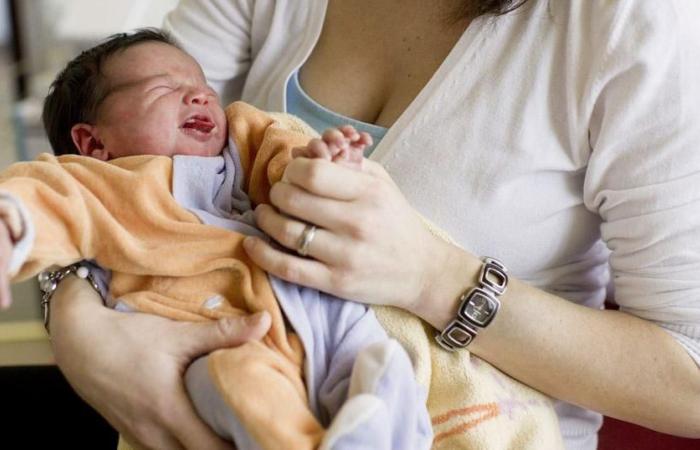In Europe, there is growing concern about the decline in the number of births, and Italy is a particularly striking example. For two years, the government has put in place measures to encourage the birth rate, but are their effects already visible?
With a negative natural balance for more than thirty years, the country has recorded a continuous decline in its population. In 2023, only 379,000 children were born, a drop of 34% in fifteen years, and 2024 could mark a new downward record.
This trend, which began in the 1970s with fertility falling below two children per woman, has worsened since then. Today, the rate remains frozen below the bar of 1.5, well below the threshold necessary to ensure the renewal of generations, indicates Alessandro Rosine, professor of social statistics at the Catholic University of Milan, Monday in La Matinale de the RTS.
A single allowance
Faced with this demographic crisis, the Italian government is trying to react. Since 2022, a single allowance has been put in place, offering from 54 to 189 euros per month and per child until the age of majority.
Giorgia Meloni, at the head of the government, also introduced a 50% increase in this allowance for 2025, as well as a bonus of 1000 euros for each birth that same year.
However, for Gianpiero Dalla Zuanna, demographer and former Democratic senator, these measures, although promising, remain insufficient: “They indicate the right direction, but they still lack substance and overall vision.” He judges that strengthening parental leave, for example, is essential to encourage families to have a second child, especially if responsibilities are better shared within the couple.
An economy that slows down births
Beyond financial aid, economic obstacles play a central role in this birth crisis. Julia Elle, an influencer followed by 570,000 people under the pseudonym Desperately Maman, talks about the weight of expenses linked to motherhood and the lack of economic prospects for young people.
“New generations no longer want to sacrifice themselves to become parents. They aspire to a dignified and meaningful life, and society must allow those who choose motherhood to do so with dignity,” she explains.
For specialists, pronatalist policies cannot succeed without a structural transformation of the labor market, such that increasing wages and promoting female employment are essential to support initiatives in favor of families.
Antonino Galofaro/way






